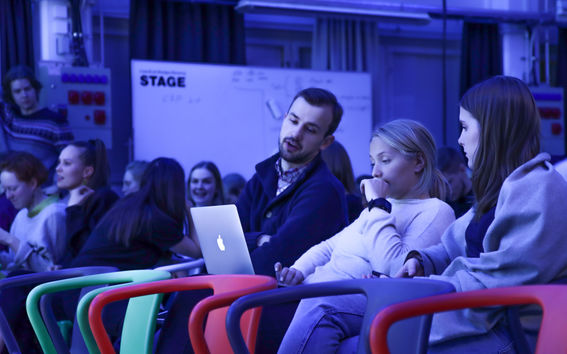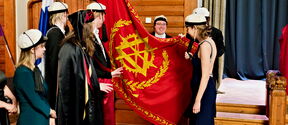Leave room for creativity and innovation – tuition fees are not the right solution

Currently, tuition fees only apply to students from outside the EU-EEA countries. As a result of the fees introduced in 2017, the pressure of students who are required to pay tuition fees has increased even more, and they have not enough time to study Finnish or build social networks. According to the results of the university’s AllWell survey (2018, 2019), international students have more experiences of burnout than local students and less experiences of peer support and social cohesion. Tuition fees impair the equality and accessibility of education, and the fees are not the right way to revive the economy. The Government has also opposed the fees for Finnish students. However, accelerated transition to working life is included in the Government Programme.
When tuition fees increase the pressure of students to graduate within the target time frame, there is no room for creativity and innovation. Thriving student communities or entrepreneurial ecosystems are not created if students have no opportunity to do anything but study. Through organisational activities and entrepreneurship, students can learn important skills, network, and build a sense of community. Therefore, students need to have time for more than just studying and have the opportunity to take different paths.
The impression of long duration of studies in Finland is distorted: completion rates in Finland are above the OECD average, and the duration of studies has decreased year by year. In Finland, graduates also quickly find jobs that correspond to their higher education, as work experience is gained already before graduation. Experience gained in volunteering is also important. Accelerating the access to higher education after upper secondary education is a legitimate challenge for education policy. The best solution is to increase funding and student places for higher education at least until age groups get smaller. The increasing of student places without funding would mean cutting the quality of education.
Students begin their careers already during their study years, as 62 per cent of Aalto students work part-time or full-time in addition to their studies (Student Income Survey 2018). Reasons for work include subsistence, interests, and the gaining of experience. Sufficient student financial aid could reduce the need to work along with studies. However, the current Government has not promised to make up for the cuts on the study grant made by the previous government.
If students wish to graduate fast, the best way to enable fast graduation is to have resources develope degree programmes – more fluent studies help to accelerate studies of all students. To put it simply, teaching is developed by analysing feedback provided by students and making changes based on the feedback. In addition to ongoing work, we need opportunities to make new openings, good examples of this are the joint course selection of universities opened for the summer and FiTech cooperation in the fields of technology, which helps both degree students and adult learners who are complementing their skills.
The Aalto community and the essential part of Aalto spirit would suffer without associations and entrepreneurship. Student life with and new innovations will not be created if people do not have time to make them. In addition, organisations, associations and volunteer work are important for many students in terms of both social networks and work experience. Tuition fees would leave no room for creativity and innovation.
Minna Mäkitalo
Policy Specialist
Rosa Väisänen
Policy Specialist
Read more news

What is Trinet, and what will happen to AYY’s internet connection?
The internet service provider for Aalto University Student Union (AYY) residents is about to change. We have heard that this change has raised concerns within the student community. In this article, Chair of the AYY Board Joona Lipponen responds to questions that concern our members.
The new polyteekkari flag finally raised in Otaniemi
The 15-year wait of the Otaniemi teekkari community was rewarded in early November, when the community ceremonially introduced the new polyteekkari flag at the 153rd Teekkari Tradition Ball. The previous flag that had united the teekkaris of Otaniemi was the flag of the Student Union of the Helsinki University of Technology, which served the community from 1909 to 2009 and was laid to its well-earned rest with the founding of the Aalto University Student Union. This is how the new flag came into being.
An electronic certificate is coming, what does it mean for students?
As part of the digitalization process in Finland, Aalto University is switching electronic degree certificates. AYY has been advocating against the digital certificate, aiming to ensure a physical token to graduates.
